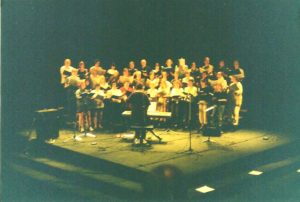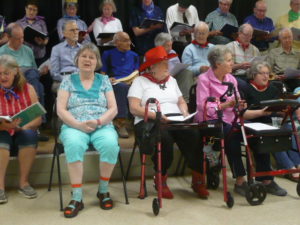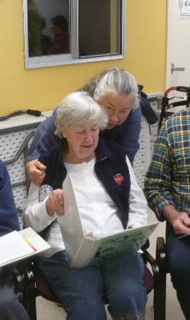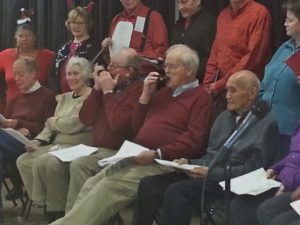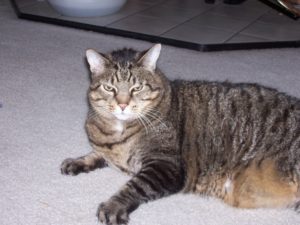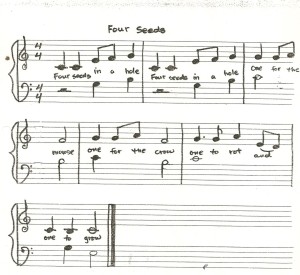A Night in Steerage
I just returned from three weeks in England. The plan was never to write blog posts while I was there because it takes me four hours to do a decent one and quite frankly I was too busy having fun. But here is the first installment with many more to come as I attempt to make a wonderful trip last even longer:
The plane from Seattle to London was a dreadful nine hours. What used to be coach is now business class and they have obviously added a lower class called steerage. That’s where I was. It was impossible to get comfortable. I wanted to throw everything I owned off the plane just to make a little room to move. Every time I reached down to get something–my water, my book, a tissue– it seemed as though some indeterminate bulk of possessions shifted in such a way as to make it impossible to just return to my position without more or less repacking everything.
My back ached the entire nine hours. There was no pillow propping that helped. Gwen had loaned me a blow-up foot ottoman and Nancy had loaned me a roll up and scrunch head pillow. They conspired against me in ruthless ways.
On the plus side I sat next to a dead ringer for Jean Marsh who was just as uncomfortable as I and who expressed her discomfort in her understated British way. I watched two movies because my pillows would not let me get my book once I had dropped it on the floor. I only slept three hours because I had forgotten to pack Xanax in my flight bag. So I had a Scotch.
I was spit though passport control and finally was walking down a corridor. I passed a currency exchange counter with two idle tellers and a cash machine. When I put my debit card into the machine, a dial pad of numbers appeared. I only knew my pin in letters. I asked the woman at the currency exchange if she could help me but she was decidedly uninterested. It was apparently too much trouble for her to even raise her head and meet my eyes.
Someone who looked American stepped up to the cash machine. When he got his cash, I asked him if he could help. Together we figured out what my pin was in letters. I got my cash and wish I had yelled “THANK YOU FOR ALL YOUR HELP” to the currency exchange woman who was picking her nose behind the counter. I had only just arrived and my sassiness didn’t fully activate until I had been around my friend Sue for 24 hours.
I found my way to the Heathrow Express and got to Paddington station where I took advantage of my first class rail pass to collapse in the first class lounge and get a decent cup of tea. That lounge has been my first and last port of call to England the last four trips and I appreciate it more and more as I get older. It’s comfortable and provides water, juices, coffee, tea, fruit, and whatever nibbles the British regard as appropriate to the time of day. By mid afternoon the choice was between two enormous cakes under glass domes to be cut with a silver cake slicer.
Mike, the attendant to the nobs, was a lovely man who helped me figure out that the train I was planning to take to Castle Cary would not actually get me to Castle Cary. He found me an earlier one. It was the same train an elderly woman was taking. Her daughter had brought her to the station and was fussing all over her. She was worried her mother would get on the wrong train, obviously out of a sense of guilt that she wouldn’t be staying to put her on the correct one.
When we found I was to be on the mother’s train, I said I’d make sure she got the correct train since by now I was reasonably certain I knew what I was doing. Mike put us both on a buggy and I got a ride to the train platform. It turned out that Mum needed absolutely no help from anyone and could have done without her daughter treating her like she was a half wit. She was cheerful about sharing her tumbril with me, though.
“This is really the way to go,” she twinkled.
As soon as I got off the train in Castle Cary, I smelled Cow. I was in Somerset. The station master–David–let me use his cell phone to call my cousin Wendy and her longtime friend, Sue who I also think of as my cousin.
“Is it a local call?” he asked.
“I assume so,” I said. “It’s to Butleigh.”
“That sounds like one of ours,” he said.
I settled in to wait. So should you.
 RSS Feed
RSS Feed


